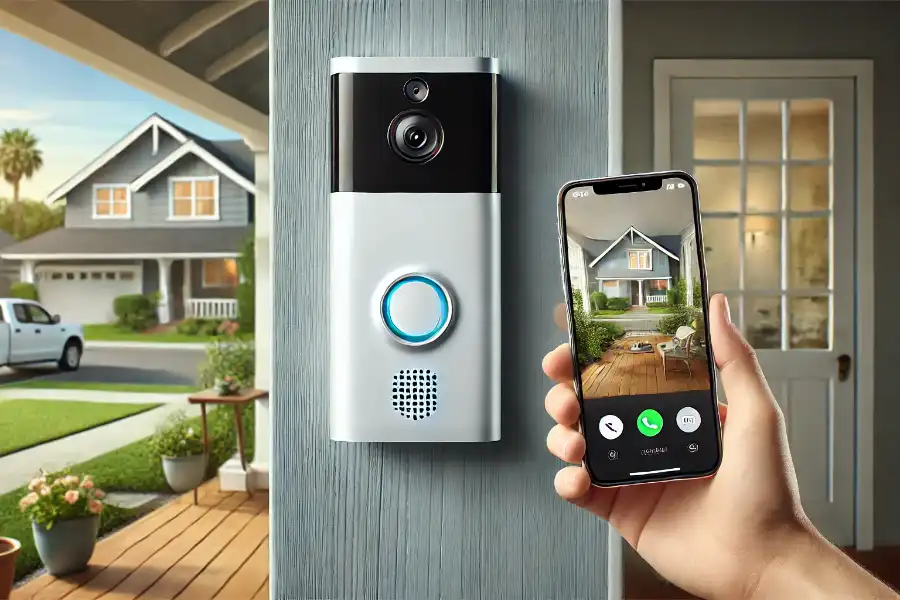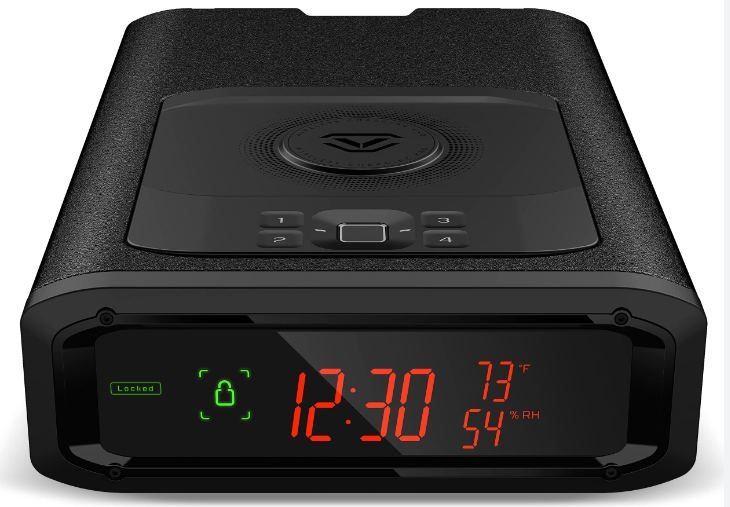Ding Dong! How Much Do You Know About Smart Doorbells?

What is a Smart Doorbell?
A smart doorbell is an upgraded version of the traditional doorbell, combining modern technology with internet capabilities. It not only notifies you of visitors through sound but also allows you to monitor your doorstep in real-time via a built-in camera, even engaging in conversation with visitors remotely. With just a smartphone, you can stay informed about what’s happening at your door, no matter where you are. These devices often come equipped with features like night vision, motion detection, two-way audio, and cloud storage, all designed to enhance home security and convenience.
Advantages of Smart Doorbells
- Remote Monitoring: Whether you’re at home or away, you can monitor your doorstep in real-time through a mobile app, which is particularly important for preventing intrusions and unexpected events.
- Video Storage: Many smart doorbells support video recording and cloud storage, allowing users to review past footage and keep track of visitor history or monitor suspicious activities.
- Two-Way Communication: Smart doorbells support two-way audio, enabling you to communicate with visitors without opening the door, making it easy to handle deliveries or unexpected guests.
- Motion Detection: Smart doorbells can detect movement at your door and notify you of any unusual activity. The sensitivity can be adjusted to reduce false alarms.
- Night Vision: Equipped with infrared cameras, smart doorbells can provide clear monitoring images even in low light conditions, further enhancing home security.
Disadvantages of Smart Doorbells
- Network Dependency: Many of the functions of a smart doorbell rely on a stable internet connection, and poor connectivity may affect video quality and real-time response.
- Privacy Concerns: The camera and cloud storage features of smart doorbells raise concerns about privacy. If the data is compromised, it could lead to security issues.
- Installation and Configuration: Although most smart doorbells claim easy installation, configuring the wireless network and setting up the device may still pose a challenge for some non-technical users.
- Higher Cost: Compared to traditional doorbells, smart doorbells are relatively more expensive, especially high-end models that may also require ongoing subscription services.
How to Choose the Right Smart Doorbell?
- Determine Your Needs: Consider the primary functions you need in a doorbell, such as HD video, night vision, or two-way communication. If you’re only looking to monitor your doorstep, a basic model may suffice; however, for enhanced security, you might want to opt for a high-end model.
- Consider the Installation Environment: Factors such as the strength of the network signal at the installation location, the availability of power sources, and exposure to weather conditions are all important when choosing a smart doorbell. Some smart doorbells are battery-powered, making them suitable for doorways without an existing power supply.
- Brand and After-Sales Service: Choosing a reputable brand not only ensures the quality of the device but also provides good after-sales service, ensuring that any issues encountered during use can be promptly addressed.
- Cost Considerations: In addition to the initial purchase cost of the device, you should also consider the subscription fees for cloud storage services, which can affect the total cost of long-term use.
Major Smart Doorbell Brands in the Market
- Ring: Ring is a leader in the smart doorbell industry, offering a wide range of products from basic to high-end models. Ring devices feature HD cameras, motion detection, night vision, two-way communication, and top-notch cloud storage services.
- Nest: Owned by Google, Nest smart doorbells are known for their excellent image quality and AI recognition technology, which can accurately identify visitors and send alerts based on settings. Nest doorbells integrate seamlessly with the Google smart home ecosystem, making them an ideal choice for Google smart home users.
- Arlo: Arlo’s smart doorbells are popular for their wireless installation and HD video capabilities, coupled with robust motion detection and long battery life. Arlo doorbells are suitable for users looking for easy installation and efficient monitoring.
- Eufy: Eufy attracts users with its no-subscription-fee policy and local storage capabilities, avoiding ongoing cloud service fees, making it a good option for those on a budget who still want comprehensive protection.
Extended Information: User Concerns
- Data Security and Privacy Protection: As smart doorbells become more common, concerns about data security and privacy protection have also increased. Ensuring that doorbell data is not compromised, and managing and deleting cloud-stored videos are key concerns for users. When choosing a brand, prioritize those that offer robust encryption technologies and strong privacy protection policies.
- Compatibility Issues: Smart doorbells typically need to be compatible with other smart home devices or mobile apps. Before purchasing, ensure that the doorbell is compatible with your existing smart home system (such as Alexa, Google Home, or Apple HomeKit) to avoid inconvenience during use.
- Firmware Updates and Product Support: Regular firmware updates can fix bugs, add new features, and improve device stability. Choosing a brand with good product support and regular updates ensures that your device will perform optimally throughout its lifespan.















Post Comment